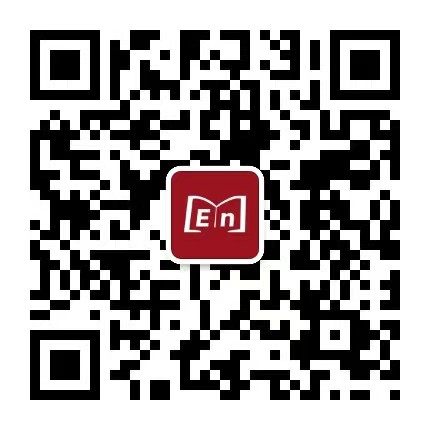![]() 当前位置: 首页 > 答题技巧 > 山东省学位英语考试的常用语法 > 正文
当前位置: 首页 > 答题技巧 > 山东省学位英语考试的常用语法 > 正文
山东省学位英语考试的常用语法
整理编辑:山东学位英语考试网 发布时间:2024-10-18 14:00:46 阅读量:
在山东省学位英语考试中,语法是重中之重,下面是一些考试常用语法助于大家在学位英语考试中更加得心应手
一、固定搭配
look forward to:期待
例句:I look forward to meeting you at the party.
get ready for:为……做好准备
例句:I need to get ready for the exam.
give up:放弃
例句:I won’t give up on my dream.
take place:发生
例句:The meeting will take place tomorrow.
take care of:照顾
例句:She takes care of her sick mother.
carry out:实施
例句:The company plans to carry out a new project.
get together:聚会
例句:Let’s get together for dinner tonight.
二、连词用法
表示并列关系
and:和,与,又,然后
例句:Go straight on, and you’ll see the library.(祈使句后连接and,有条件句作用,此时and=if you…,you’ll…)
both…and…:既……又……,两者都……
例句:Both Jim and Kate are from England.(both…and…谓语动词一般用复数)
not only…but also…:不仅……而且……
例句:Not only the mother but also the children are ill.(连接两个主语后的谓语动词遵循就近原则)
neither…nor…:既不……也不……
例句:Neither I nor he has seen the play before.(连接两个并列主语时,谓语动词遵循就近原则)
表示转折关系
but:但是
例句:Mary was a nice girl, but she had one shortcoming.
however:然而
例句:Your composition is fairly good, however, there is still some room for improvement.
yet:然而,但是
例句:Tom got up early, yet he failed to catch the train.
still:不过,还是
例句:He was very tired, still he kept on walking.
while:然而
例句:Jane is hard working, while her sister is quite lazy.
表示选择关系
or:或者,还是
例句:Is your friend English or American?
either…or…:或者……或者……,不是……就是……,要么……要么……
例句:Either you or I am right.(连接两个并列主语时,谓语动词遵循就近原则)
whether…or…:是……还是……,不管……还是……
例句:She is always cheerful, whether at home or at school.
表示因果关系
for:因为
例句:He is not at school today, for he has a bad cold.
so:所以
例句:It was late, so I went home.
三、时态
一般现在时
概念:经常、反复发生的动作或行为及现在的某种状况。
时间状语:always, usually, often, sometimes, every week (day, year, month…), once a week, on Sundays, etc.
基本结构:be动词或行为动词
否定形式:am/is/are+not;若谓语动词为行为动词,则在其前加don't,如主语为第三人称单数,则用doesn't,同时还原行为动词。
一般疑问句:用助动词do提问,如主语为第三人称单数,则用does,同时还原行为动词。
一般过去时
概念:过去某个时间里发生的动作或状态;过去习惯性、经常性的动作、行为。
时间状语:ago, yesterday, the day before yesterday, last week (year, night, month…), in 1989, just now, at the age of 5, one day, long long ago, once upon a time, etc.
基本结构:be动词或行为动词
否定形式:was/were+not;在行为动词前加didn't,同时还原行为动词。
一般疑问句:用助动词do的过去式did提问,同时还原行为动词。
现在进行时
概念:表示现阶段或说话时正在进行的动作及行为。
时间状语:now, at this time, these days, etc.
基本结构:am/is/are+doing
否定形式:am/is/are+not+doing
一般疑问句:把be动词放于句首。
过去进行时
概念:表示过去某段时间或某一时刻正在发生或进行的行为或动作。
时间状语:at this time yesterday, at that time,或以when引导的谓语动词是一般过去时的时间状语等。
基本结构:was/were+doing
否定形式:was/were+not+doing
一般疑问句:把was或were放于句首。
现在完成时
概念:过去发生或已经完成的动作对现在造成的影响或结果,或从过去已经开始,持续到现在的动作或状态。
时间状语:recently, lately, since…for…, in the past few years, etc.
基本结构:have/has+done
否定形式:have/has+not+done
一般疑问句:have或has放于句首。
过去完成时
概念:以过去某个时间为标准,在此以前发生的动作或行为,或在过去某动作之前完成的行为,即“过去的过去”。
时间状语:before, by the end of last year (term, month…), etc.
基本结构:had+done
否定形式:had+not+done
一般疑问句:had放于句首。
一般将来时
概念:表示将要发生的动作或存在的状态及打算、计划或准备做某事。
时间状语:tomorrow, next day (week, month, year…), soon, in a few minutes, by…, the day after tomorrow, etc.
基本结构:am/is/are/going to+do或will/shall+do
否定形式:在行为动词前加won't(即will not),同时还原行为动词;或在am/is/are后加not,构成am/is/are not going to do
一般疑问句:will/shall提到句首;或将am/is/are提前到句首
过去将来时
概念:立足于过去某一时刻,从过去看将来,常用于宾语从句中。
时间状语:the next day (morning, year…), the following month (week…), etc.
基本结构:was/were/going to+do或would/should+do
否定形式:was/were/not+going to+do;would/should+not+do
一般疑问句:was或were放于句首;或would/should提到句首
掌握这些常用语法示例有助于你在山东省学位英语考试中更加得心应手。同时,也建议你多做真题来练练手,以便更好地巩固所学知识。

更多学位英语相关咨询欢迎扫描下方二维码进行咨询或者是关注“山东微言学位英语服务网"公众号!

想了解更多的山东省学位英语答题技巧,请点击>>山东省学位英语考试答题技巧
想了解更多的山东省学位英语学位问答,请点击>>山东省学位英语学位
转载请注明:文章转载自(http://www.sdxwyy.net)





